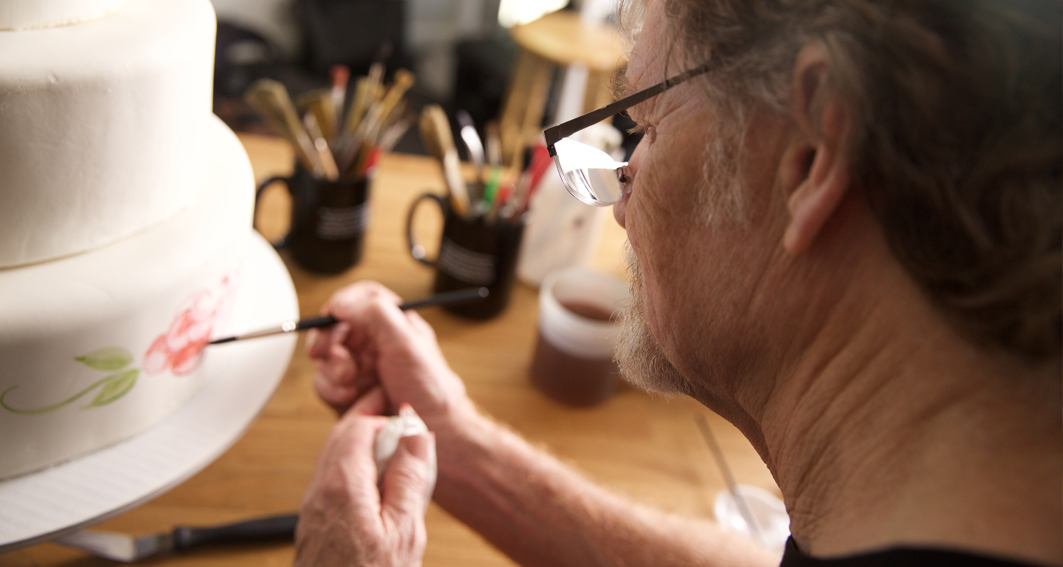Jack Phillips and Masterpiece Cakeshop are once again making news, as a Denver attorney who ordered a cake from Phillips to celebrate the anniversary of his “gender transition” from a man to a woman has filed a lawsuit against the Christian baker.
The attorney, who now calls himself “Autumn” Scardina, is also an LGBT activist. He filed his initial claim against Phillips with the Colorado Civil Rights Commission (Commission) in 2017, on the same day that the U.S. Supreme Court agreed to hear Phillips’ appeal in the now-famous same-sex wedding cake case. And in 2018, shortly after the U.S. Supreme Court decided in favor of Phillips’ religious conscience rights, the Commission issued a determination of “probable cause” that Phillips violated Scardina’s rights by denying him a custom-created “transition” cake.
But Phillips wasn’t content to simply play defense again. He and his attorneys at Alliance Defending Freedom filed a lawsuit against the Commission for, once again, violating Phillips’ religious freedom. The Commission, when faced with revelations of its members’ continuing religious hostility toward Phillips, decided to settle with him by dropping its case on behalf of Scardina. Phillips simultaneously dropped his lawsuit against the Commission.
That should have been the end of the harassment of the Christian baker. However, under Colorado law, Scardino had the right to bring his own lawsuit against Phillips for allegedly violating the state nondiscrimination law, which he has now done.
Scardina claims in a local Denver news report that the cake request Phillips denied was for a birthday cake, not a “transition” cake, and that the denial was based solely on his status as a transgender female.
The facts of the case say otherwise, however. Scardina’s original claim stated that “Specifically, [Masterpiece Cakeshop] refused to prepare my order for a cake with pink interior and blue exterior, which I disclosed was intended for the celebration of my transition from male to female. Furthermore, [Masterpiece Cakeshop] indicated to me that to prepare such a cake would be against their religious beliefs.”
Jack has consistently told the courts, reporters, interviewers, and Scardina the same thing: He serves all customers, but he doesn’t promote all messages. That’s his First Amendment right. Or at least it ought to be.
In fact, it used to be that way before states and municipalities started passing SOGI (sexual orientation and gender identity) laws, and the lives and businesses of Christians were turned upside down in a social engineering effort to force them to either deny their deeply held beliefs, or go out of business.
Jack Phillips lost 40% of his income and had to let employees go when he dropped his wedding cake business while he defended himself in the first lawsuit.
We’ll see whether the Colorado courts care that this lawsuit is an intentional set-up. Scardina didn’t look for any other baker; Phillips was by that time well-known for his religious stance regarding the wedding cake case. Scardina wanted to make sure that Phillips turned down his “transition” cake so that Scardina could either have the Commission go after him, or he would do so himself.
Scardina also made sure that Phillips would realize the symbolic expression he was being asked—no, forced—to promote. Notice that Scardina didn’t ask for words on the cake. He knew that Phillips’ free speech rights would be stronger in that type of case than in one where only “symbolic speech” is represented through the choice of colors for the cake. That had to be intentional on the part of Scardina, the lawyer.
One final thing. If the purpose of the Colorado nondiscrimination law is to prevent hurt feelings, that’s not an issue in this latest case. Scardina knew exactly what he was doing. He went looking for a way to make Phillips’ life difficult once again, with the blessings of Colorado law. He wanted Phillips to turn him down.
He shouldn’t be rewarded for that.






